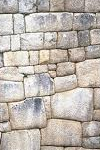 Yom Rishon (l’Shabbat): the first day toward the coming Shabbat: Sunday on the Gregorian calendar.
Yom Rishon (l’Shabbat): the first day toward the coming Shabbat: Sunday on the Gregorian calendar.
And the psalmist asks, “Who may ascend the mountain of Y-H-V-H?” And the psalmist asks, “Who may rise in God’s sanctuary?”
Yom Sheni (l’Shabbat): the second day toward the coming Shabbat: Monday on the Western calendar.
And the psalmist says, “In your temple, God, we meditate upon your kindness.”
Thus, we progress, from day to day, from psalm to psalm, from below to above, from mundane to sacred. Stitching together the liturgy the rabbis create, or receive, a story and pass it on. A story to counter the story of loss, ruin, extinction.
Within the prison of time, an urge to overcome time’s vanquishing and vanishing. Our own vanishing.
On Monday a worshipper might remember, as she reads Psalm 48, the psalm for Monday, that yesterday, just yesterday, she wondered with the psalmist if she were worthy of ascending to the sanctuary, God’s sanctuary.
Today, yes, today! She meditates with the psalmist in God’s temple, upon the Divine’s kindness. Day stitched to day.
Imagination: the seamstress. Memory: the thread.
But this victory over time? Only for a moment.
“Walk all about Zion, encircle her,” instructs the psalmist, in the penultimate verses of Psalm 48. “Count her towers, review her ramparts, scan her citadels.”
Yes, behold, pay loving attention to every detail, for this, this is God’s dwelling place on earth. “In her citadels,” writes the psalmist, God is “known . . . as a refuge.”
“Then tell her story,” instructs the psalmist, “to later generations; tell of our God who will guide us forever.”
Zion’s towers will not stand tall forever; her citadels will not stand strong forever. Stone will turn into story.
Already in the morning, this is known. Already, in the morning, the dawning of evening: the day’s vanishing begins even as daylight arrives.
Anxious, afraid. Even in the place of God is the erasure of the place. The body, too, the body of the beloved, is the erasure of the body.
So try to remember some details. These words from a psalmist of another century, closer to our own but receding. (One is tempted to say into darkness, but can a dark century become even darker as it recedes from the present?)
“Remember the clothing / of the one you love,” instructs Yehuda Amichai, psalmist of a later generation, “so that on the day of loss you’ll be able to say: last seen / wearing such-and-such, brown jacket, white hat.”
Remember some details so that you’ll be able to turn her life, when it has vanished, into story. Story: more durable than flesh, more durable than stone.
More durable than time? How does God, who is the erasure of God, answer that one? Oblivion.
“Try to remember some details,” Amichai implores.
Try to remember some details. For the world
is filled with people who were torn from their sleep
with no one to mend the tear,
and unlike wild beasts they live
each in his lonely hiding place and they die
together on battlefields
and in hospitals.
Hasn’t Amichai’s century (the twentieth) ended and a new one begun? How does Time answer that one? Is Time bored by the question, bored by our obsession with counting?
Number our days: Yom Rishon (first day; May 6, 2012, this particular first day), Yom Sheni (second day; May 7, 2012, this particular second day) until our daily counting ends: Shabbat: the day on which our counting rests.
Alas, how soon the counting resumes.
And the poem, the psalm of a later generation:
And the earth will swallow all of them,
good and evil together, like the followers of Korah,
all of them in their rebellion against death,
their mouths open till the last moment,
praising and cursing in a single
howl.
Rebels: rabbis. Rabbis who stitched together the days with psalms, the Psalm for Monday, who will ascend; the Psalm for Tuesday, in your temple, God, we meditate upon your kindness.
Day linked to day: story: how we rebel against death.
Korah rebelled against Moses. And to rebel against Moses is to rebel against God. (But isn’t God a rebellion against God?) For his act, Korah was swallowed by earth. Korah’s sons, who witnessed their father’s rebellion, and, as ordered by God, the earth’s swallowing, instruct us to walk all about Zion, which they know is oblivion, source of the story we are instructed to tell and tell.
And in its telling is our rebellion that will guide us forever.
Richard Chess is the author of three books of poetry, Tekiah, Chair in the Desert, and Third Temple. Poems of his have appeared in Telling and Remembering: A Century of American Jewish Poetry, Bearing the Mystery: Twenty Years of IMAGE, and Best Spiritual Writing 2005. He is the Roy Carroll Professor of Honors Arts and Sciences at the University of North Carolina at Asheville. He is also the director of UNC Asheville’s Center for Jewish Studies.












